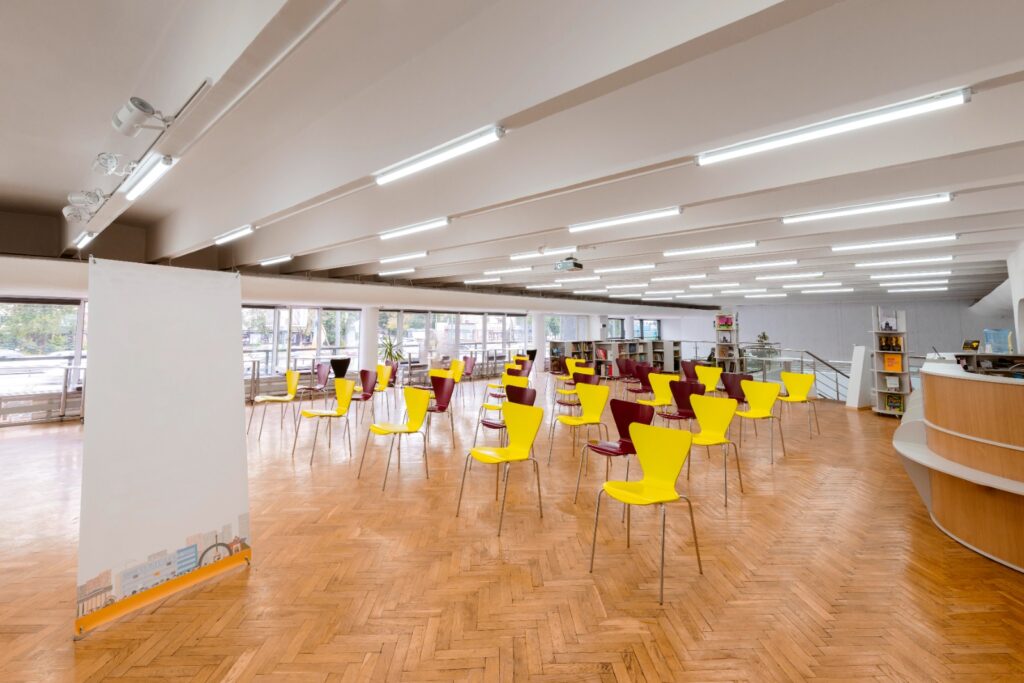Blog
Why Local Sourcing of Commercial Furniture Matters for Sustainability

Introduction
In an era where sustainability is paramount, every aspect of business operations is under scrutiny. When it comes to commercial furniture, the shift towards local sourcing is gaining momentum. This change isn’t just a trend; it’s a strategic move that holds significant implications for both businesses and the environment. In this article, we’ll explore why local sourcing of commercial furniture is a vital step towards achieving sustainability goals.
Looking for: best Commercial furniture shop in Lahore.
The Sustainability Imperative
Embracing Eco-Friendly Practices
Sustainability isn’t just a buzzword; it’s a necessity. Businesses across the globe are reevaluating their practices to reduce their environmental impact and contribute to a greener future.
Rethinking Procurement Strategies
Sourcing commercial furniture locally aligns with sustainability goals. It minimizes the carbon footprint associated with long-distance shipping and fosters responsible business practices.
The Ecological Footprint of Global Sourcing
Environmental Impact of Shipping
Global sourcing often involves shipping furniture across long distances. This contributes to carbon emissions, air pollution, and increases the ecological footprint of the products.
Carbon Emissions and Sustainability
High levels of carbon emissions from transportation not only harm the environment but also negate the efforts of organizations striving to be environmentally conscious.
Benefits of Local Sourcing
Reducing Carbon Footprint
Local sourcing significantly reduces transportation distances. This translates to fewer carbon emissions, making it an effective way to support sustainability goals.
Supporting Local Economies
Choosing local suppliers boosts the local economy by providing jobs and opportunities for growth. It nurtures a symbiotic relationship between businesses and their communities.
Quality and Customization
Enhanced Product Control
Local sourcing allows businesses to maintain better control over the production process. This often results in higher-quality furniture that meets specific requirements.
Collaboration with Local Artisans
Working with local artisans fosters creativity and innovation. It enables businesses to customize furniture designs that reflect their unique brand identity.
Strengthening Community Bonds
Building Relationships with Local Suppliers
Local sourcing creates opportunities for businesses to build strong relationships with suppliers. This fosters trust and transparency in the supply chain.
Contributing to a Circular Economy
Sustainable practices extend beyond sourcing. By collaborating with local suppliers, businesses contribute to a circular economy by reducing waste and supporting recycling efforts.
Overcoming Challenges
Balancing Cost and Sustainability
One challenge is finding a balance between cost-effectiveness and sustainability. Local sourcing might involve slightly higher costs, but the long-term benefits outweigh the initial investment.
Sourcing Specialized Products Locally
Certain specialized Modern Commercial furniture may not be readily available locally. However, businesses can explore collaborations with local craftsmen to create unique pieces.
Navigating the Supply Chain
Transparency and Accountability
Local sourcing promotes transparency in the supply chain. Businesses can directly assess sourcing practices, ensuring they align with ethical and sustainability standards.
Ethical Sourcing Practices
Choosing local suppliers often means adhering to ethical labor practices. This minimizes the risk of supporting unethical practices often associated with distant sourcing.
The Role of Businesses in Driving Change
Influencing Supplier Practices
Businesses hold significant influence over suppliers. By demanding sustainable practices, they can drive positive changes throughout the supply chain.

Leading by Example
When businesses prioritize local sourcing for commercial furniture, they set an example for others in the industry. This collective effort can shape a more sustainable future.
Crafting a Sustainable Future
Aligning Furniture Choices with Values
Every decision matters. Choosing locally sourced furniture demonstrates a commitment to environmental stewardship and responsible consumption.
Promoting Industry-Wide Change
The power of change is contagious. By adopting local sourcing practices, businesses can inspire others in the industry to follow suit, sparking an industry-wide shift towards sustainability.
Conclusion
The impact of local sourcing on the sustainability of commercial furniture goes far beyond aesthetics. It’s a tangible step towards reducing carbon emissions, supporting local economies, and fostering ethical practices. Businesses that embrace local sourcing are not only making environmentally conscious choices but also setting a precedent for the entire industry. As we navigate a rapidly changing world, local sourcing is a beacon of hope, leading us towards a more sustainable and responsible future.
Searching for: Best Online Home & Commercial Furniture Store.
FAQs
1. Does local sourcing only benefit the environment?
No, local sourcing also stimulates local economies by creating jobs and supporting small businesses.
2. Is local sourcing cost-effective for businesses?
While local sourcing may have slightly higher initial costs, the long-term benefits in terms of sustainability and quality make it cost-effective in the broader context.
3. Can local sourcing be applied to all types of commercial furniture?
Yes, local sourcing can be applied to a wide range of commercial furniture, promoting sustainability and supporting local communities.
4. What role do businesses play in promoting sustainability through local sourcing?
Businesses can drive positive change by demanding sustainable practices from suppliers, leading the industry towards more responsible sourcing.
5. How can businesses find reliable local suppliers for commercial furniture?
Research local suppliers, visit their facilities, and engage in transparent discussions to ensure they align with your sustainability goals before forming partnerships.

